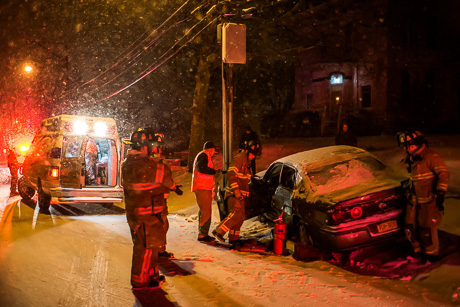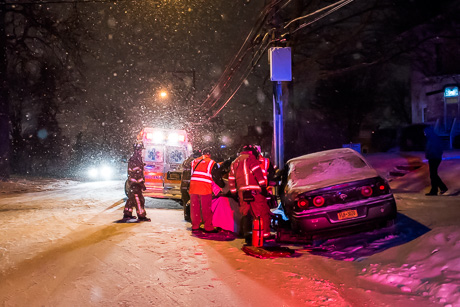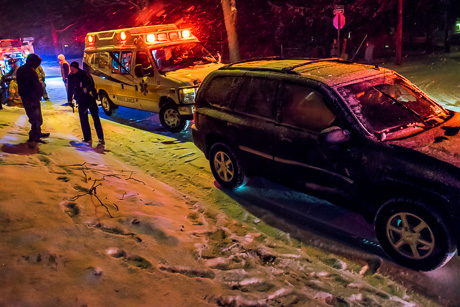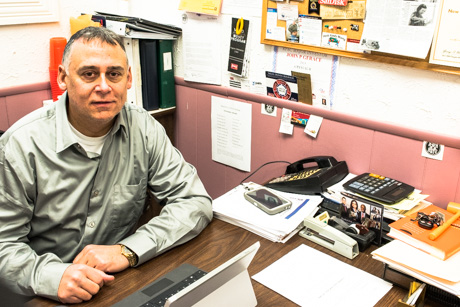There are ample reasons to be optimistic about Batavia's future, City Manager Jason Molino says in his annual budget message delivered yesterday to City Council Members along with the proposed 2016-17 budget, even though the coming year will be hampered slightly by an uncertain sales tax picture.
Downward pressure on oil prices is likely to mean a decrease in sales tax revenue for the City as gas prices remain low and could fall further, according to Molino's projections.
Meanwhile, some expenses continue to go up and the city's property tax base is seeing only modest growth. Therefore, Molino said, the city probably needs to raise property taxes by 13 cents, putting the rate a $9.29 per thousand of assesses value. The tax levy would increase by $55,621, or 1.10 percent.
For a home assessed at $80,000, the proposed increase adds $10.40 to the annual tax bill.
While sales tax on gas is only 18 to 20 percent of total sales tax receipts for the city, sales tax is the city's largest general fund revenue source at 39 percent of the city's general fund.
"We project a slowdown in the coming year," Molino said, "but how much is hard to project."
That's why the city needs to continue its focus on economic growth, which will expand the city's most stable revenue source -- property tax, Molino said.
The budget calls for the continuation of programs that will help, and are helping, to drive the city's growth, such as brownfield redevelopment, as well as capital investments in sidewalks and roadways, along with the ongoing, multi-year effort to invest $22 million in upgrades to sewer and water infrastructure. All of these programs will have a significant impact on the willingness for businesses to locate or expand in and around Batavia, Molino said.
There's already been progress in the city on brownfield redevelopment, such as the conversion of the former Carr's warehouse into a business and residential complex as well as the work under way to start a brewery and restaurant in the former Newberry's building. There are other projects in the works, Molino said.
"These areas didn't become blighted overnight and we won't correct the blight overnight," Molino said. "It will take time, it will take people and it will take energy."
Over the past decade, the city has made tremendous budgetary progress, Molino noted, going from a city operating at a deficit with little credit to one with a $8 million fund balance and an A-1 credit rating.
At the same time, the city has managed to replace nearly $3 million of antiquated equipment.
While the budget will use reserves for capital improvements, Molino notes that the projected decline in sales tax revenue will inhibit the city's ability to replenish those funds this year, but he sees the current economic environment as temporary and expects the economy to pick up, especially locally, over the next couple of years.
A potential bright spot on the sales tax picture is the planned construction of a plant for 1366 Technologies in the STAMP project in Alabama, Molino noted. It's hard to project the potential impact of that project, but Molino noted in his budget message that the construction of two yogurt plants in the Genesee Valley Agri-Business Park helped the city realize 4 to 6 percent sales tax growth in 2012 and 2013.
Another positive note coming out of 2015 is single-family home sales reach 122 closed escrows, up from 80 in 2013.
The city is also benefiting from a slight uptick in the assessed value of properties, as a couple of properties that were previously exempt from property taxes because of PILOT guarantees are now getting those increased assessed values taxed. Some of the additional revenue, however, is offset by the loss of PILOT payments from property owners. (PILOT = payment in lieu of taxes; taxes are exempt at a pre-defined formula on the increase of assessed value on a redeveloped property, but the property owner pays a fee to receive that benefit. That fee is split among the taxing jurisdictions that would otherwise receive the abated property tax.)
With the city facing ever escalating workers compensation insurance costs, Molino is also proposing the city adopt a self-funded insurance program, which will result in about a $250,000 cost savings. The assistant city manager and HR director would administer the new program.
The proposed spending from all funds for 2016-17 is $24,798,158. The general fund expenditure is proposed at $16,204,570. That's an annual increase of $499,806.
It's critical, Molino said, that the city continue to invest in its future, because only through economic growth can it meet future financial challenges and continue or improve city services.
There's a lot of positive momentum, a renaissance, in Batavia, in Genesee County and throughout the region, from Rochester to Buffalo, Molino said. Batavia needs to be a part of that positive trend.
"Let's stop with the negative perceptions about what Batavia can't be and talk about what Batavia can do," Molino said.
Molino ended the intro to his budget message on a similar high note, sounding a bold and ambitious vision statement for the city:
We need to become a community where employers don’t think twice when considering expansion. Our government services must strive for excellence and foster cooperation. It’s imperative our organizational culture and physical assets reflect immense pride in our City. We need to become a community where people of all ages truly enjoy life. Our vision is simple, to make Batavia the community of choice, in which the quality of life is unmatched and opportunity is around every corner.


















